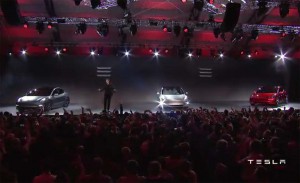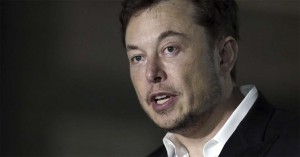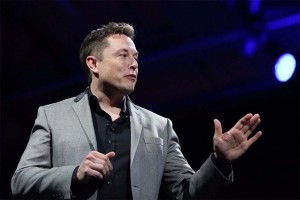Even as questions mount about CEO Elon Musk’s plan to take the automaker private, the car company’s board is beginning the necessary steps to evaluate a proposal, with investment firms Silver Lake and Goldman Sachs brought in to offer advice on what appears to be a Saudi-funded buy-out.
Those developments come just a week after CEO Musk tweeted his interest in taking Tesla private while also hinting that “funding (is) secured.” Precisely where the funding will come from has become a central question, though Musk on Monday put up a blog post indicating he has been meeting with managers of the Saudi Arabian sovereign investment fund who have expressed interest in backing the plan.
Tesla, meanwhile, now faces a probe by the SEC, as well as at least two lawsuits filed last week questioning whether the South African-born executive’s proposal was, in reality, a “nuclear attack” on by short-sellers.
(Musk reveals Saudis would play key role. Click Here for more on that development.)
Whether Musk was directly taking aim at those “shorts” may become a matter for the courts and the SEC to resolve, but there is little doubt that the CEO bridles at having Wall Street constantly looking over his shoulder. That was made particularly obvious during the automaker’s first-quarter earnings call when Musk dismissed as “boring” questions from several key analysts.
But experts warn that Tesla could face other challenges going private.
Whether that will happen is far from certain. A specific proposal has apparently not yet been presented to Tesla’s board of directors which has now formed a special committee to study whatever plan they might eventually receive. It’s composed of independent directors Brad Buss, Robyn Denholm and Linda Johnson Rice.
Separately, Tesla has reached for outside advice, hiring mega-investment firm Goldman Sachs, as well as the buyout specialist Silver Lake – which helped Michael Dell take his eponymous computer maker Dell private in 2013.
Bringing those two major players onboard could add some much-needed credibility to a proposal that has raised plenty of eyebrows in the automotive and investment communities. After surging in the hours after Musk’s original tweet, Tesla stock tumbled sharply and has been yo-yoing since, dipping as much as 2% in Tuesday trading.
The CEO attempted to give his plan some critical credibility in his Monday blog post, offering some insight into his claim that there was funding on hand to back the proposal. At the $420-a-share target Musk set, it would value the company at about $72 billion – or more than 40% more than the current market capitalization of General Motors.
Claiming that the Saudis had repeatedly expressed interest in backing the privatization of Tesla, Musk said he left a meeting on July 31st “with no question that a deal with the Saudi sovereign fund could be closed, and that it was just a matter of getting the process moving.” He added that, “This is why I referred to ‘funding secured’ in the August 7th announcement.”
(For the full Musk Monday morning blog post, Click Here.)

The move to take Tesla private comes just as the automaker shows signs it can generate a profit by fixing problems with production of the Model 3.
Whether that is enough to legally justify Musk’s original tweet is something that is generating significant debate. Were the SEC to rule otherwise, Musk and Tesla could face significant problems, including hefty fines.
The information revealed in the Musk blog post “supports the idea that there was reasonable basis on which to believe that funding could be secured but it doesn’t eliminate the concern with respect to whether ‘secured’ was an overstatement and only underscores how inappropriate Twitter was for such a disclosure,” Zachary Fallon, a former SEC attorney and principal at law firm Blakemore Fallon, told the Reuters news service.
In one of the tweets Musk issued last week, Musk appeared to indicate that the Saudis wouldn’t provide all of the money needed for the deal, suggesting “all” current shareholders would be encouraged to retain a stake. But under such a structure they would have far less control over management and face limits on when and how they could sell off their holdings.
(Click Here for more about the rally and fall of Tesla stock.)
That could lead some large investors to have to back away. “Our inclination is that if we could go private with him, we would, but it’s complicated,” one large Tesla investor told Reuters, speaking on condition of anonymity. Many index funds might find it difficult to continue holding Tesla shares though some, such as Fidelity Blue Chip, have done so in the past.
How things shake out and who will remain onboard is not something likely to become clear until Musk and the Tesla board provide more information about their plans.
(Click Here for more on what the SEC is looking for.)


